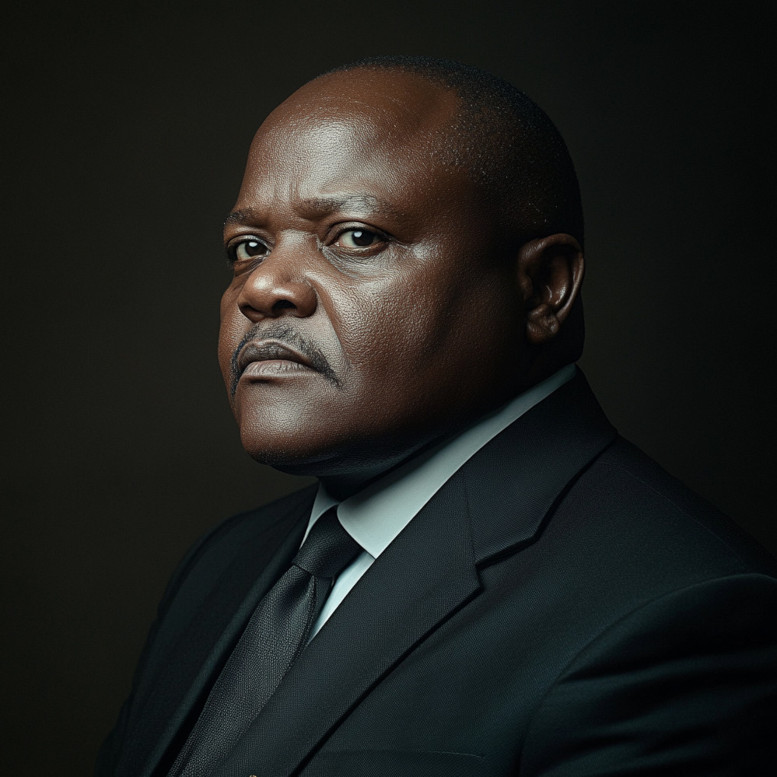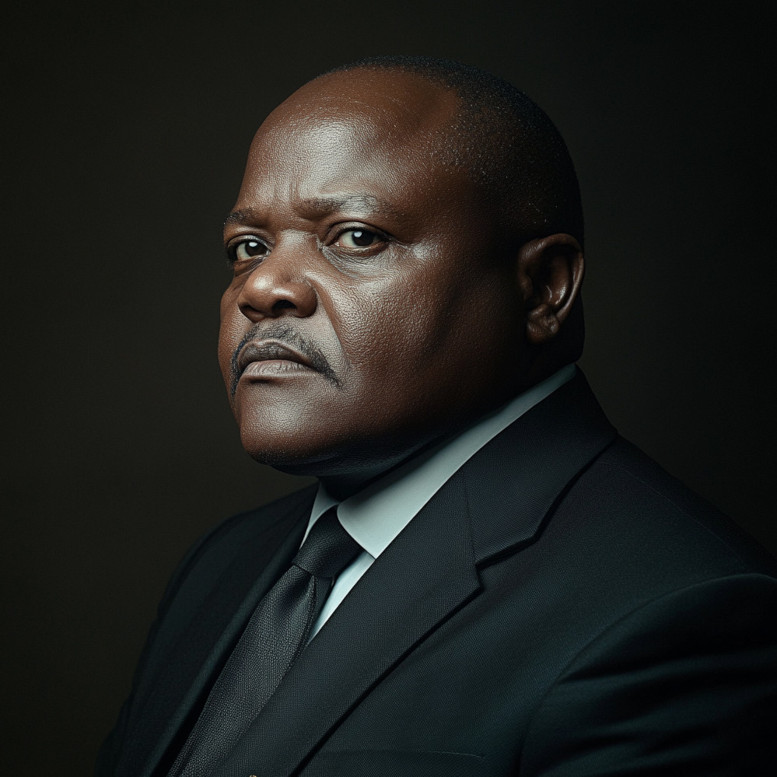


Mokgweetsi Masisi (born July 21, 1962) is a Botswana politician who has served as the President of Botswana since April 2018. Before becoming president, Masisi held various key positions within the government, including Vice President and Minister of Education. He succeeded Ian Khama as the leader of Botswana, a country known for its political stability and robust democratic traditions. As president, Masisi has focused on issues such as economic diversification, education, public health, and anti-corruption efforts.
Birth and Background: Mokgweetsi Eric Keabetswe Masisi was born on July 21, 1962, in Moshupa, a village in the Southern District of Botswana. He comes from a politically prominent family; his father, Edison Masisi, was a senior politician and served as a cabinet minister in the government of Botswana's first president, Sir Seretse Khama.
Education: Masisi pursued his early education in Botswana before attending the University of Botswana, where he earned a degree in English and History. He later furthered his education in the United States, earning a postgraduate diploma in Education from the University of Exeter in the United Kingdom, followed by a Master’s degree in Education from Florida State University in the United States. His academic background and training were in education, and before entering politics, he worked as an educator and curriculum developer.
Entry into Politics: Mokgweetsi Masisi entered politics in the early 2000s, running for a parliamentary seat in the 2004 general elections. He was elected as the Member of Parliament (MP) for Moshupa constituency under the Botswana Democratic Party (BDP), which has been the ruling party in Botswana since independence in 1966.
Ministerial Positions: After his election to parliament, Masisi quickly rose through the ranks within the BDP and the government. He served in various ministerial roles, including as Minister of Presidential Affairs and Public Administration from 2011 to 2014. During this time, he was responsible for overseeing public administration and coordinating government policy. In 2014, he was appointed Minister of Education and Skills Development, where he focused on improving the quality of education in Botswana.
Vice President: In 2014, following the general elections, President Ian Khama appointed Masisi as Vice President of Botswana. As Vice President, Masisi was heavily involved in several key areas of governance, including economic planning, social development, and public service reforms. He also served as the leader of government business in parliament, which further increased his influence within the ruling party and the government.
Succession and Inauguration: In April 2018, Mokgweetsi Masisi succeeded Ian Khama as President of Botswana, following Khama's retirement after serving the maximum two terms allowed under the constitution. Masisi's ascent to the presidency was part of a smooth transition of power, which is a hallmark of Botswana's political stability.
Economic Diversification: One of Masisi’s primary goals as president has been to diversify Botswana’s economy, which has historically been heavily dependent on diamond mining. He has emphasized the need to develop other sectors such as tourism, agriculture, and manufacturing to reduce the country's reliance on diamonds and create more employment opportunities. Masisi has also sought to attract foreign investment and improve the business environment in Botswana.
Education and Public Health: Continuing his focus on education, Masisi has implemented policies aimed at improving access to and the quality of education in Botswana. He has also prioritized public health, particularly in response to the HIV/AIDS epidemic, which has had a significant impact on Botswana. Under his leadership, the government has expanded access to healthcare services and launched initiatives to address public health challenges.
Anti-Corruption and Governance: President Masisi has positioned himself as a strong advocate for good governance and anti-corruption measures. He has taken steps to strengthen institutions that promote transparency and accountability, and he has pledged to tackle corruption at all levels of government. His administration has also emphasized the importance of the rule of law and maintaining Botswana's reputation as a stable and democratic country.
Foreign Policy and Diplomatic Relations: Masisi has sought to maintain Botswana’s active role in regional and international affairs. He has worked to strengthen ties with neighboring countries and has advocated for peace and stability in southern Africa. Additionally, Masisi has sought to balance Botswana’s foreign relations, maintaining strong ties with traditional allies while also exploring new partnerships.
Internal Party Dynamics: During his presidency, Masisi has faced challenges within his own party, the BDP. His leadership style and policy decisions have led to tensions with some members of the party, including his predecessor, Ian Khama. These tensions have occasionally spilled into the public domain, creating challenges for Masisi as he navigates party dynamics while leading the country.
2019 General Election: Masisi led the BDP to victory in the 2019 general elections, securing a mandate to continue his presidency. The BDP won a majority of the seats in parliament, allowing Masisi to remain in power. The election was seen as a significant test of his leadership, and the victory affirmed his position both within the party and as the head of state.
COVID-19 Response: Like many other world leaders, Masisi has had to deal with the challenges posed by the COVID-19 pandemic. His government implemented measures to curb the spread of the virus, including lockdowns, travel restrictions, and the rollout of a national vaccination program. The pandemic has also underscored the importance of strengthening Botswana’s healthcare system and economic resilience.
Governance and Reforms: Masisi’s tenure as president has been characterized by efforts to modernize Botswana’s economy, improve governance, and enhance social services. His emphasis on education, health, and economic diversification reflects his broader vision of sustainable development for Botswana.
Political Stability: Despite internal party challenges and external pressures, Masisi has maintained Botswana’s reputation for political stability and democratic governance. His leadership continues to be a key factor in ensuring the country remains one of Africa’s most stable and well-governed nations.
Future Prospects: As Masisi continues his presidency, his ability to navigate complex political dynamics within the BDP, address economic challenges, and manage public health crises like COVID-19 will be critical to his legacy. His leadership will also be judged by how effectively he can implement his vision for a diversified, prosperous, and equitable Botswana.
Mokgweetsi Masisi is a significant figure in contemporary Botswana, leading the country through a period of both challenges and opportunities. His presidency is marked by a focus on economic diversification, education, public health, and anti-corruption efforts. As he continues to guide Botswana, Masisi’s actions and policies will shape the future of the country and his place in its history.

We use cookies
We use cookies and other tracking technologies to improve your browsing experience on our website, to show you personalized content and targeted ads, to analyze our website traffic, and to understand where our visitors are coming from. Privacy Policy.